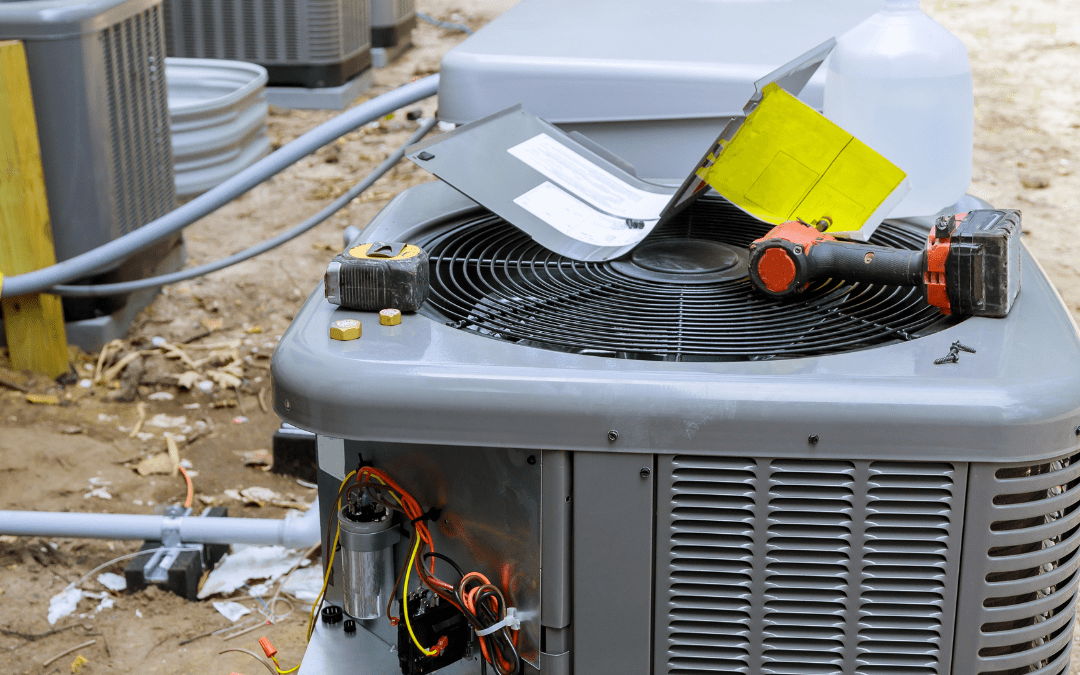A significant investment that every homeowner encounters at one time or another is deciding when to install a new HVAC system. When the time comes that repairs are no longer sufficient, your HVAC unit is between 10 and 20 years old and is constantly the cause of high utility bills. It’s a good idea to consider replacing your outdated unit with a newer one. This is also an excellent time to educate yourself on what constitutes a fair HVAC replacement quote.
There’s no question that these home comfort systems are costly, but you can’t put a price tag on ensuring your family remains comfortable, safe, and productive all year long, no matter how hot or cold the weather is outside.
We hope this article will help alleviate some stress and anxiety by providing insight into determining if your HVAC replacement quote is fair. By educating yourself, you can confidently choose the best option for your home or business without worrying about paying more than necessary or falling victim to deceitful heating and air contractors.
Understanding the Factors That Affect HVAC Replacement Costs
When determining the cost of an HVAC installation, several factors come into play, including:
Type and Size of the System: The type and size of the HVAC system you choose will significantly impact its cost. Larger systems or those with more advanced features tend to be more expensive than the standard models.
Efficiency Rating: HVAC systems with higher efficiency ratings are typically pricier upfront but can save you money on energy bills in the long run. Consider whether investing in a more efficient system is worth it for your specific needs and budget.
Installation Requirements: There are several installation requirements that may increase the overall cost of replacing your HVAC system. These can include any variation of the following: unique ductwork configurations, the number of vents and returns, the number of zones and controls, complex wiring, or changes to your existing infrastructure.
Regional Considerations: Labor and material costs can vary depending on your property’s location. When seeking an HVAC replacement quote, it’s essential to consider any regional factors that may affect pricing.
An HVAC contractor’s quote should be detailed, transparent, lengthy, and detail the project’s scope. So, what other considerations should the quote include?
Evaluating the Scope of Work: What Does the Quote Include?
Components Included: The first step in evaluating an HVAC replacement quote is carefully reviewing what it includes. Make sure that all is necessary.
Scope of Work: Next, examine whether the estimate outlines the scope of the work. This should specify all the tasks, such as new equipment foundation, new line sets, disconnects, etc., and provide a breakdown of any other considerations associated with installing the new HVAC system.
Permits: Be aware of any permitting requirements, where applicable, that are needed for replacing your HVAC system. Find out who will be responsible for obtaining them – you or the contractor?
Warranty Information: Ensure that the warranty details for parts and the labor are clearly stated within the quote document. This way, you can accurately compare quotes to see which offer provides better long-term protection.
Examining the Quality of Equipment and Materials
When evaluating an HVAC replacement quote, it’s a good idea to consider the quality of the equipment and materials that are being used. Cheaper options may seem appealing at first glance, but they often come with hidden costs regarding performance and longevity.
Here are a few key factors to keep in mind:
Brand Reputation: Research the reputation of the equipment brand. Look for well-established companies known for reliable and long-lasting products, such as Trane.
Energy Efficiency: Choosing an energy-efficient model can help save you on utility bills in the long run. Look for its Energy Star rating and SEER (Seasonal Energy Efficiency Ratio) or AFUE (Annual Fuel Utilization Efficiency).
Warranty Coverage: Check what kind of warranty is offered with the new equipment.
Quality Assurance Program: Inquire about any quality control measures put in place by the HVAC contractor to ensure that all installation and replacement processes meet industry standards.
By carefully evaluating these aspects of your HVAC replacement quote, you can determine if it offers a fair value while avoiding subpar replacements that may cost you more money.
The Importance of Energy Efficiency: Assessing Long-Term Savings
When considering whether an HVAC replacement quote is fair, assessing the long-term energy efficiency savings potential is a good idea. Upgrading to a more energy-efficient HVAC system may require a higher upfront cost but can lead to significant savings over time.
Lower Utility Bills: Energy-efficient systems consume less electricity than their inefficient counterparts. This reduced energy consumption can lower your monthly utility bills, saving home and business owners hundreds or thousands of dollars annually.
Reduced Maintenance and Repair Costs: Like any machine, it’s a good idea to have your HVAC system maintained twice a year, but typically the more energy-efficient systems are built with higher-quality components. These tend to require less frequent repairs and maintenance. This translates into additional long-term savings as fewer service calls mean lower expenses for homeowners.
Rebates and Incentives: Many government programs offer rebates and incentives for installing energy-efficient systems that help offset some of the initial costs associated with the upgrade.
Considering the long-term benefits of energy efficiency when assessing an HVAC replacement quote is essential for making informed decisions. By investing in an energy-efficient system, homeowners can enjoy considerable savings while benefiting from rebates and incentives.
Additionally, these systems come with improved durability and reliability, significantly reducing future maintenance and repair costs.
Considering Labor Costs: Finding a Balance Between Quality and Affordability
As you evaluate an HVAC replacement quote, it’s essential to consider the labor costs. These costs typically account for a significant portion of the replacement total expense. However, balancing quality and affordability is good when assessing labor charges.
Here are some essential factors to keep in mind:
Experience and Expertise: Look for HVAC contractors with experience in the field. While their rates may be higher, their expertise ensures quality workmanship that can prevent future issues and costly repairs.
Training and Certifications: Check if the contractor possesses relevant certification or belongs to professional organizations within the industry. This indicates that they have received proper training and adhere to industry standards.
Guarantees: Inquire about any guarantees and warranties provided by the contractor. Do they offer a 100% satisfaction guarantee? A reputable heating and air contractor will stand behind their work, offering you peace of mind knowing they will address any issues arising after installation.
Remember, while it is essential to consider labor costs in your decision-making process, they should prioritize YOU, your comfort, safety, and complete satisfaction.
Recognizing Hidden Fees and Extra Charges: Avoid Surprises
We recommend carefully examining the breakdown of the costs provided. Look out for hidden fees or extra charges that may take time to be apparent. Some common examples in the industry include:
Permit Fees: Many jurisdictions require permits for HVAC system replacements, and these costs are often passed onto the homeowner. Ensure if there are any permit fees that, they’re clearly stated in the quote.
Delivery Fees: If special equipment or materials are needed to be delivered to your home, additional charges may be associated with this service. Pay attention to whether delivery fees are included or if they will be added later.
Installation Extras: Certain features or upgrades might come at an additional cost, such as smart thermostats, specialized ductwork, a new unit stand, etc. Ensure you understand all the extras mentioned in the quote and their associated prices.
Be diligent when examining your quote to avoid any surprises later. Ask for clarification on unclear items and compare quotes from different providers to ensure you get a fair price without hidden fees or extra charges.
Finding the Right HVAC Company for You
We recommend researching and compiling a list of reputable HVAC contractors in your area. Ask your family, friends, and neighbors for recommendations. Read online reviews and verify the credentials of that company. Are they licensed and insured? Do they properly vet their employees through drug tests and criminal background checks before hiring them? Who is responsible for pulling the permits? Do they offer financing options? Most HVAC companies offer financing payment plans to make the investment more manageable. Don’t hesitate to ask for references and contact previous customers to gauge their satisfaction.
Trust Smoak’s Comfort Control
At Smoak’s Comfort Control, we believe all customers should be informed about what they’re getting and paying for. We hope this blog helps educate them on some things to remember before making this purchase – whether it’s a new heat pump or a split system, we can help.
We provide free estimates and free second opinions on replacement HVAC systems. Since 1972, we have provided “Comfort for Life” to thousands of homes and businesses in Charleston, SC, and the surrounding areas. Our team has 345+ years of combined experience. As a locally family-owned and operated HVAC contractor, we prioritize our customer’s comfort, safety, and complete satisfaction.

